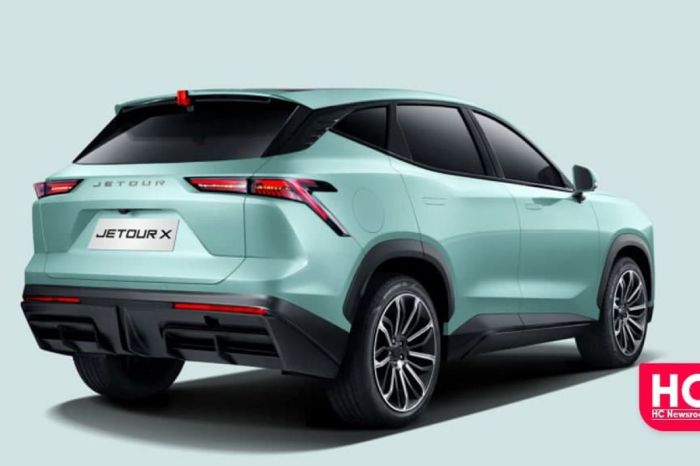New Car No Haggle Price A Buyers Guide
Understanding No-Haggle Car Pricing: New Car No Haggle Price
New car no haggle price – The automotive industry is evolving, and one significant shift is the increasing adoption of “no-haggle” pricing for new cars. This approach eliminates the traditional back-and-forth negotiation process, offering a transparent and potentially less stressful buying experience. This article delves into the intricacies of no-haggle pricing, examining its advantages and disadvantages for both consumers and dealerships, exploring the role of technology, and analyzing consumer perception and trust in this emerging sales model.
Defining “No Haggle Price”
In the context of new car sales, “no haggle price” signifies a fixed price for a vehicle, eliminating the traditional negotiation process between the buyer and the seller. This upfront pricing model presents the final price, including any applicable fees and taxes, leaving no room for bargaining or haggling over the base price. The process typically involves browsing available inventory, selecting a vehicle, and completing the purchase at the advertised price.
This contrasts sharply with traditional car buying, where negotiating the price is often a lengthy and sometimes contentious process.
No-Haggle Pricing versus Traditional Car Negotiations

Source: antaranews.com
The key difference lies in the level of price negotiation. Traditional car buying involves extensive negotiation, often requiring multiple visits to the dealership and skillful bargaining to secure a favorable price. The final price may include additional fees that weren’t initially disclosed. In contrast, no-haggle pricing eliminates this process, presenting a single, transparent price upfront. While traditional negotiation might lead to a lower price in some cases, it demands considerable time and negotiation skills.
No-haggle pricing prioritizes efficiency and transparency over potentially achieving a slightly lower price.
Examples of No-Haggle Pricing Models

Source: mycarneedsa.com
Dealerships employ various no-haggle pricing models. Some advertise a single, fixed price for each vehicle, including all fees. Others may offer a price range for similar vehicles, providing some flexibility based on options and features. Some dealerships may still negotiate on trade-in values or financing options, even with a fixed price for the vehicle itself. These variations allow for some degree of customization within the no-haggle framework.
Advantages and Disadvantages of No-Haggle Pricing for Consumers
No-haggle pricing offers several benefits for consumers, primarily increased transparency and reduced time commitment. However, potential drawbacks exist. A balanced perspective requires considering both sides of the coin.
| Feature | No-Haggle Advantage | No-Haggle Disadvantage | Traditional Negotiation |
|---|---|---|---|
| Price | Transparent and upfront pricing | May not always be the absolute lowest price | Potential for lower price, but requires negotiation skills and time |
| Time Commitment | Faster and more efficient purchase process | Less flexibility in negotiating terms | Time-consuming process involving multiple visits |
| Stress Level | Less stressful buying experience | May feel less control over the final price | Can be a stressful and emotionally taxing experience |
| Transparency | All fees and charges are clearly stated upfront | Limited room for negotiation on add-ons | Potential for hidden fees and charges |
Advantages and Disadvantages of No-Haggle Pricing for Dealerships, New car no haggle price
Implementing a no-haggle pricing strategy presents both benefits and challenges for dealerships. While it streamlines the sales process and potentially improves customer satisfaction, it also impacts profit margins and requires a different sales approach.
- Advantages: Increased efficiency, improved customer satisfaction, reduced sales staff workload, enhanced brand transparency.
- Disadvantages: Potential for reduced profit margins if prices are not set optimally, challenges in managing customer expectations, the need for robust online tools and resources.
Transparency and Pricing Strategies in No-Haggle Sales

Source: cccollision.net
Transparency is paramount in no-haggle sales. Dealerships typically achieve this by clearly displaying all costs upfront, including taxes, fees, and any additional charges. Common pricing strategies involve setting prices based on market analysis, competitor pricing, and the vehicle’s features and condition. This contrasts with traditional sales where the final price is often a result of negotiation and may include hidden fees.
Consumer Perception and Trust in No-Haggle Pricing
Consumer perception significantly impacts the success of no-haggle pricing. Trust is essential; consumers need to believe the advertised price is fair and competitive. Dealerships build trust through transparent pricing, positive customer reviews, and consistent adherence to their no-haggle policy. A hypothetical example: A dealership consistently delivers on its no-haggle promise, resulting in positive word-of-mouth referrals and increased customer loyalty.
Impact of Technology on No-Haggle Car Sales
Online tools and platforms have significantly facilitated the adoption of no-haggle pricing. Online car configurators and price calculators allow consumers to easily compare prices and options, promoting transparency and empowering informed decision-making. The online experience often provides a more efficient and convenient alternative to in-person transactions, further enhancing the overall customer experience.
General Inquiries
What happens if I find a lower price elsewhere with a no-haggle dealership?
Dealerships with strict no-haggle policies generally don’t match competitor prices. Their pricing is intended to be final and non-negotiable.
Can I still negotiate financing terms with no-haggle pricing?
While the car’s price is fixed, you may still be able to negotiate financing terms, such as interest rates or loan length, with the dealership’s finance department.
Are there hidden fees in no-haggle pricing?
Reputable no-haggle dealerships strive for transparency. However, it’s crucial to carefully review all documentation before signing to ensure there are no unexpected fees. Ask questions if anything is unclear.
How does no-haggle pricing affect trade-in value?
Negotiating a new car’s price can be stressful, but “no haggle” pricing offers transparency. Understanding the current market is key, and checking the median price of new car in us provides valuable context. This allows you to determine if a no-haggle price is truly competitive before committing to a purchase. Ultimately, a clear price upfront simplifies the buying process.
Trade-in appraisals are usually separate from the no-haggle price of the new car. You might still negotiate the trade-in value independently, although this may not always be possible depending on the dealership’s policy.





















